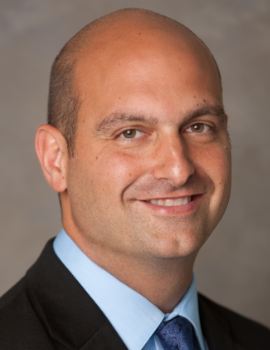
The sprawling, 125,000-student school district in Duval County, Fla., has a reputation for being particularly cold territory for vouchers and charter schools. But last month, its new superintendent recommended the school board approve a dozen new charter schools and, in doing so, sounded this refrain: We have to compete.
In an interview with redefinED, Nikolai Vitti said the competition injected into public education through expanded choice will improve schools in Duval, which has struggled with low-income students more than other big districts in Florida. He said he “vehemently opposed” limiting options for low-income parents. He spoke admiringly of the mission and innovative practices of the KIPP charter schools.
“The reality is, the market – meaning the structure of choice – forces me to compete, even if I don’t want to. And if I don’t compete, parents will continue to leave the school district,” Vitti said. “And so my role as superintendent is to improve our product.”
But Vitti, who previously served as chief academic officer in the Broad-Prize-winning Miami-Dade district, also offered a number of caveats. State rules tilt the playing field towards charter schools, he said. And in his view, the debate over them has been driven by perceptions of quality, not data.
“There are charter schools that have a track record of success, and particular charter schools that have failed, and failed in multiple areas,” he said. “Let’s not have an ideological conversation. Let’s have one based on data where we look at individual charter schools, individual traditional public schools, and ask the question: Who’s successful? Who’s not? And what’s the best situation for parents based on how they’re looking at it, and how the district as informed educators are looking at it?”
Vitti also offered a surprising take on who should authorize charter schools. In Florida, only school boards can do so – a situation that charter school opponents prefer, and one that may be tough to change because of restrictive language in the state constitution. But Vitti said unless changes are made to the charter application process – something that forces better dialogue between charters and districts – he’d rather have the state do the authorizing.
“I do believe there’s a way to create a balance between simply approving charter schools at the district level based on a boilerplate application process … and instead allow and require the charter school to be more strategic with the district,” he said. But “if we’re not going to create some kind of balance between that, then simply place the onus of the application process on the state. Because essentially that’s what’s happening already.”



What is Dr. Vitti’s take on the current Mckay bill and greater accountability for Mckay schools?
Hi Allison, that’s a good question but I don’t know the answer. I interviewed Dr. Vitti before Sherri’s story on the McKay bill came out, so I didn’t have that on my list of questions for him.
[…] Matus of redifinED recently interviewed new Duval school’s superintendent Nikolai Vitti. The former chief […]